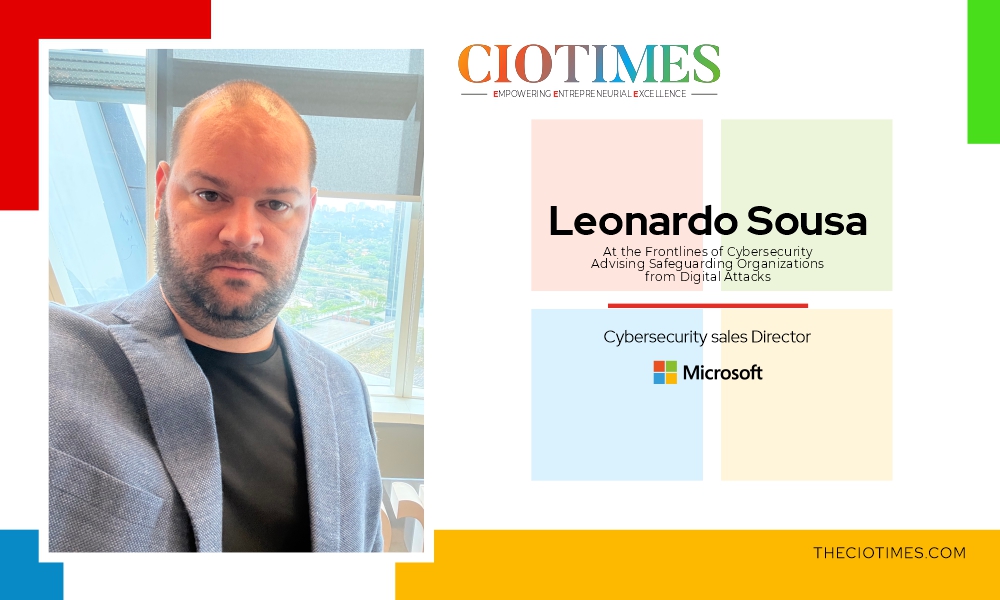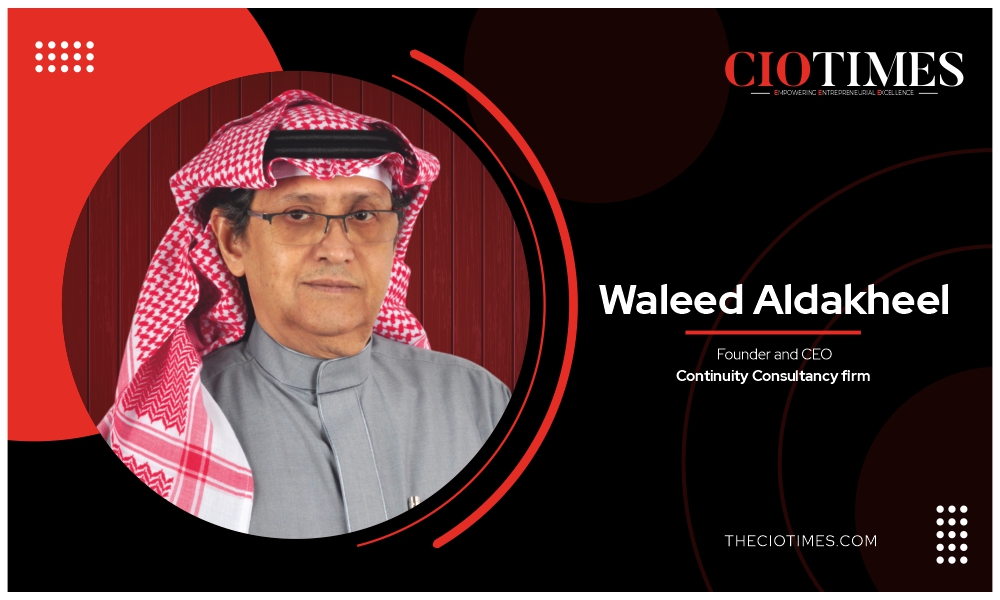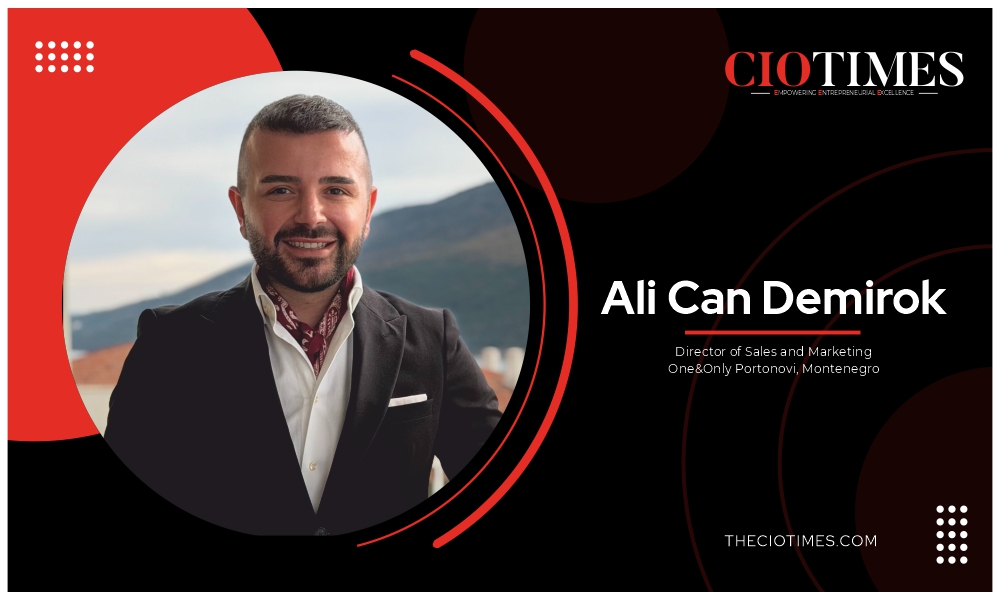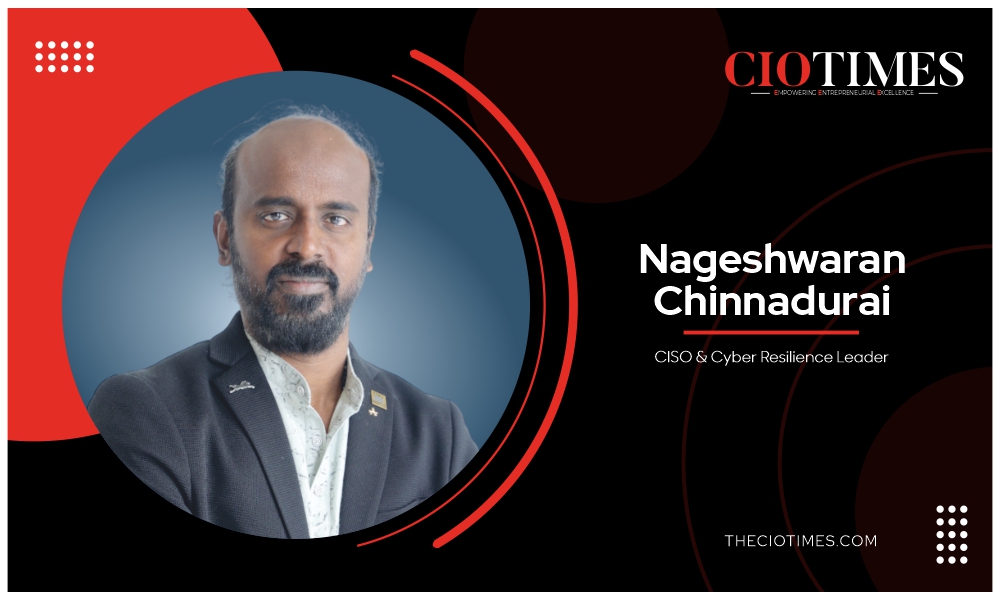As we are in the technology-dependent era, organizations and individuals heavily rely on tech to store, access, and share information. Cybersecurity experts play a critical role in safeguarding this confidential information. Maestros like Leonardo Sousa, Cybersecurity Sales Director at Microsoft, act as a protective shield against cybercriminals. These digital offenders aim to exploit vulnerabilities for financial gain, identity theft, or corporate espionage.
Leonardo began his career at an early age, and in his teenage years, he focused on Microsoft technologies. Beginning in large-scale organizations as a system and network administrator, he had more in him than just building robust technical expertise. He had a knack for transforming complex conversations into clear and simple language. This skill opened doors for transitioning into consulting firms specializing in Microsoft solutions.
Leonardo shares,”I embraced a new challenge in Microsoft’s security sales organization, where I combined years of technical field experience with business acumen.”
This combination now enables him to go beyond traditional sales, serving as a trusted advisor on security strategies and guiding customers to align technology initiatives with their business objectives to achieve meaningful impact.
Leonardo’s journey demonstrates the power of curiosity, adaptability, and strategic vision. His illustrious journey shows he has navigated complex threats while shaping organizational resilience. His emphasis on empathy, continuous learning, and a human-centered approach to technology highlights how leadership goes beyond tools; it’s about understanding people, business, and risk. By bridging advanced AI, cloud-first strategies, and human judgment, he empowers organizations to stay ahead of evolving threats.
Secure Growth
Leonardo’s main focus is on understanding the cybersecurity challenges his customers face and crafting tailored strategies that directly support their business growth. He firmly believes that strong cybersecurity isn’t just a protective measure, it’s a key driver of sustainable success for any organization, in any industry.
He often likens it to automotive brakes; you wouldn’t drive a car at 100 mph without trusting its brakes. In the same way, a solid cybersecurity foundation allows companies to move forward confidently, knowing they are safeguarded.
For him, this work goes beyond technology; it’s about making complex ideas simple and approachable while building a safer digital world. By helping organizations strengthen their security, he not only supports their growth but also creates a ripple effect that positively impacts millions of people around the globe.
Strategic Security
According to Leonardo, the central focus should always be a deep understanding of the business. Most companies are not cybersecurity organizations, so he emphasizes that a CISO’s priority should be to first understand where the business stands today, where it aims to go, and in what timeframe. This clarity provides the right foundation for making informed investments and knowing what to prioritize.
He also highlights that a strong security strategy must include identity as a key focus, noting that identities can be both human and non-human, which makes this area deserving of special attention.
Leonardo advises,” If your environment includes OT/IoT, make sure it is addressed with the same level of importance it holds for your business.”
Finally, Leonardo recommends investing in solutions and processes that improve detection and response to threats. This goes beyond technical measures and includes practices such as conducting thorough Business Impact Assessments (BIA) and performing real-world simulation exercises involving the board, communications team, and investor relations team.
Balanced Digital Security
Leonardo observes that modern work has evolved dramatically in recent years, removing many physical barriers and fundamentally reshaping the traditional concept of a security strategy built around a defined perimeter.
He notes that the dynamism of new generations and the widespread availability of technology have enabled companies to adopt more decentralized work models. What many organizations often overlook, however, is that productivity and security are like a pendulum; you should never let one outweigh the other.
He shares,” Striking the right balance is the best path forward.”
He emphasizes that there is little value in being flexible, collaborative, and physically free if it comes at the cost of increased exposure to cyber threats. This was evident during the pandemic, when remote work surged and cyberattacks spiked.
For Leonardo, it is clear that strong security is what makes modern work possible, and the same applies in today’s emerging era of AI agents. He sees vast opportunities ahead, confident that these agents can deliver significant efficiency gains for companies worldwide. Yet, he stresses that without robust governance over information access and the ability to detect anomalous patterns, even the most promising solutions will lack the reliability needed to drive meaningful progress.
Human and Tech Collaboration
About the intersection of AI and human expertise in the times of threat detection, Leonardo says it is about complementary elements. Unlike a machine, a human can never possess the skill to grasp and interpret the volume of data. Similarly, unlike a human, he sees no possibility of a machine crafting a business with political, behavioral, and emotional contexts that are essential for strategic decision-making.
He stresses,” We need to focus on the strengths of each.”
Furthermore, he says, while machines have greater sensitivity in detecting threats than humans, determining the best approach and the right moment to apply each proposed remediation still relies on uniquely human factors decisions that only people are capable of making.
Future Threat Readiness
Leonardo believes that attacks involving advanced social engineering, such as deepfakes, along with jailbreaking attacks, will dominate the threat landscape in the coming years, carrying potentially significant impact. He emphasizes that the best way to prepare for this future begins with getting the basics right, making sure foundational security is well implemented, and that critical assets are shielded with multiple layers of defense.
He also stresses that organizations will not be able to protect themselves without leveraging AI-driven solutions to detect threats that are becoming increasingly difficult for humans to identify. And when it comes to people, Leonardo highlights the importance of strong security awareness programs as essential to what he calls scalable security, where users play a central role in the overall protection strategy.
The Cloud Culture
The cloud-first model is widely considered to be established in most organizations globally. The primary challenge, however, centers on the implementation of this model as an integral part of the culture within more traditional organizations. For these instances, a leader such as Leonardo would assert that adopting a cloud-first mindset is seen as the critical factor in determining a business’s ability to navigate future challenges.
These challenges encompass adaptability and flexibility, alongside operational cost efficiency. A key focus area is the business itself, where the cloud-first culture has demonstrated the speed at which a company can advance when its energy is directed toward its core business. This approach avoids the investment of time and resources in new server infrastructure and technologies that risk becoming obsolete before the value of the expenditure is realized.
Guiding Principles
The central driver for cloud migration should function as a guiding mantra for organizations. They must consistently evaluate the underlying factors and drivers (which are often multifaceted) steering this decision and retain continuous focus on them. Some organizations may mistakenly believe their data is inherently less secure in the cloud. However, as Leonardo often points out, they frequently overlook the reality that the investment major cloud providers make in both security and infrastructure vastly exceeds what could ever be achieved in their own datacenters. This comparison also excludes the substantial team of highly skilled and experienced professionals dedicated to managing mission-critical environments.
A fundamental point that Leonardo consistently emphasizes is that cloud security operates on a shared responsibility model.
He asserts,” Cloud security is a shared responsibility.”
It’s critical that for every workload migrated to the cloud, the customer maintains a clear understanding of the specific responsibilities they must own for protection and maintenance, and which fall under the vendor’s scope. Operating in the cloud without fulfilling the customer’s role in this shared model will never guarantee the full security of the environment. Furthermore, a lack of clarity in the cloud environment suggests it was likely also missing in the on-premises model, where complexity and inherent risks are even greater.
Curiosity Matters
Leonardo often feels that staying fully up to date is nearly impossible. Today, though, platforms exist that can summarize the main threats in the market and quickly highlight ways to build protection paths. Alongside these are security posture and maturity management solutions that keep professionals consistently aware of what must be done, always driven by the highest risks. Yet no platform or tool can replace dedication and the willingness to learn. He often stresses that curiosity is a key trait for anyone working or aspiring to work in information security. In this way, curious people naturally seek different methods to stay current and aligned with best practices, as it genuinely reflects who they are in both life and thought.
Next-Gen Security
In cybersecurity, he believes we will face a dual reality: on one hand, the challenge of increasingly advanced threats, highly sophisticated techniques capable of damaging a company’s reputation within minutes; on the other hand, a stronger and more refined ability to detect, respond to, and contain these threats effectively. This dynamic, Lenardo notes, will drive a profound shift in the profile of the professional of the future. They will need a broader and deeper understanding of their business to provide meaningful context and enable AI models, along with their agents, to perform at their highest potential.
He asserts,” I don’t believe AI will replace the human workforce.”
Instead, even in the short term, he sees it reshaping the way people work and demanding that individuals become more mission-driven, focusing consistently on the core purpose and priorities of their organizations. Finally, he anticipates major advancements in quantum computing and the transformative revolution it will bring to human life. He emphasizes that in the emerging world of quantum computing, many of the cybersecurity practices relied upon today will become obsolete. Staying at the forefront of these developments is crucial to ensure businesses continue to grow, adapt, and thrive in this entirely new reality.
Mindful Influence
Leonardo acknowledges that this is a deep and difficult question to answer. When we asked him about his legacy, he aspires to leave behind. He mentioned he would like to be remembered as an individual who encouraged people to actively practice empathy and social listening.
He adds,” These are absolutely essential traits when you need to propose a solution—whether for an organization or for an individual.”
He believes it is impossible to solve a problem without truly listening and being genuinely interested in it. He also holds that true success comes only when one has the empathy to put oneself in someone else’s place, to feel their pain fully, and to imagine the sense of relief, satisfaction, and accomplishment that successfully resolving that problem will bring. He further believes that the greatest inventors in human history possessed this same mindset, and it is precisely because of this approach that they were able to change the lives of millions of people and be remembered forever.
Favorite Quote
Upon asking his favorite quote, Leonardo shared an interesting one:
“Hope has two beautiful daughters, anger and courage; anger teaches us not to accept things as they are; courage, to change them” – St. Augustine




